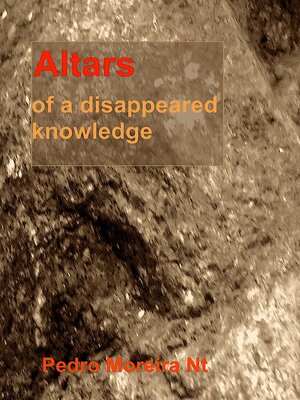
Sign up to save your library
With an OverDrive account, you can save your favorite libraries for at-a-glance information about availability. Find out more about OverDrive accounts.
Find this title in Libby, the library reading app by OverDrive.



Search for a digital library with this title
Title found at these libraries:
| Library Name | Distance |
|---|---|
| Loading... |
All the time, we have parts from the past, our memory creating things that never happened, transforming experiences in others, constructing memories, inventing dreams, and dreaming that is a better way to live.
Altars, in this book, are a text about our textualization, internal writing, and view of the world around us. What we forget, what we can remember, and what it can offer at each Altar is our ritual, a trail to overcome and become our experience in a personal signification.
Lived experiences mean retaking, not by complementation, but through our transformation, and it can be a sign constructed, a way of seeing the world. The history of philosophy says that choice is an ethical act, a position about many things.
In a context with more delineation about conflict and determination of options than choice. I present Altars that could evaluate our singular inferences about what we want to do. Treats in an oniric vision of life's surprise.
Altars, this text proposes to play a game. It is a poem whose concretion is present in human life. It is no longer a book; its words need each step, modified with the reader's memory. A collection of things, a see beyond a window, a time in which we talk with other, a taste, a sensation, anything that come by age filter, by experiences, and through our ability to create our memory.
Memory is not only a direct condition of a representation of something lived but is the line to create the present creating it.
Altars is a text that says to us to create our ritual, a devotion to the metaphor of life. How says the cultural saying, "does sleep, after waking up, and does dreams." We can see or think of Altars as a poem, in that the traces of our lost illusions or our recreated truth through illusionary and dreamed time.
It comes to creating their perception, a reference point, or a signal to define or give a new sense to memory. Despite this, it has locked pieces that need to be understood and taken: metaphors, contradictions, intent not revealed, voices from the past, and images.
The text appears as a poem that can be seen as a question that creates doubts; The only possible certainty is in our ability to construct our memory with our feelings each Altar.







